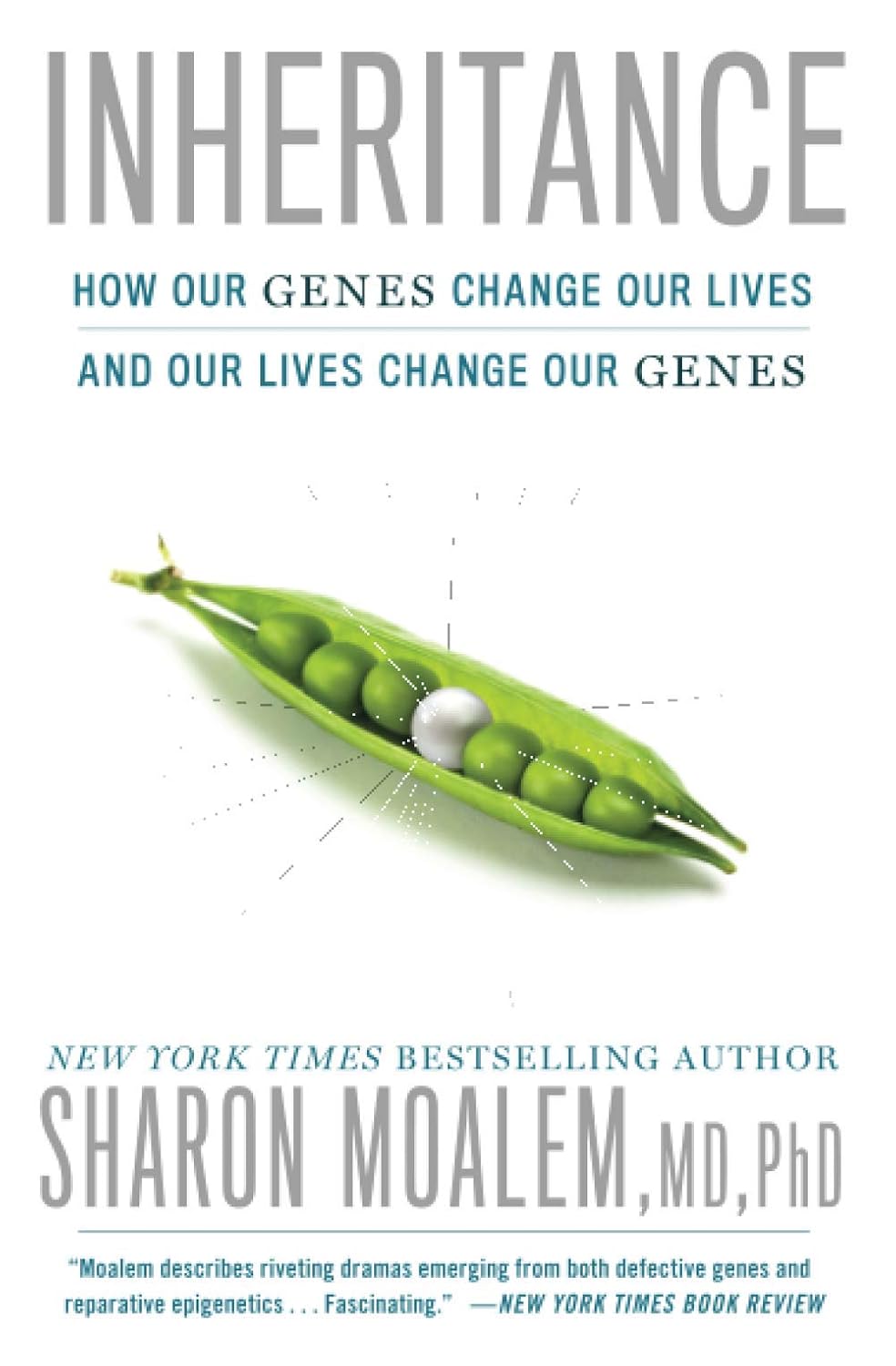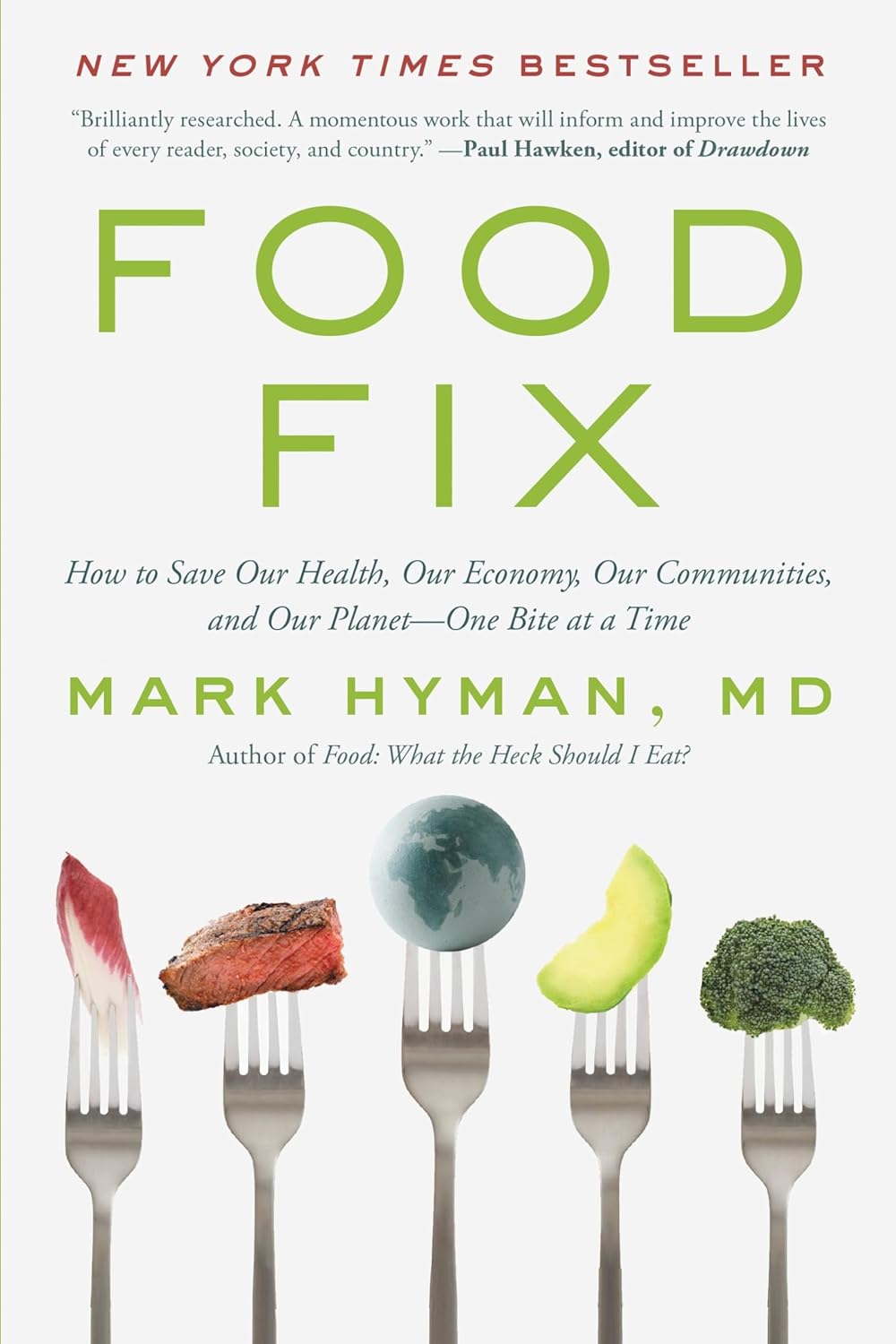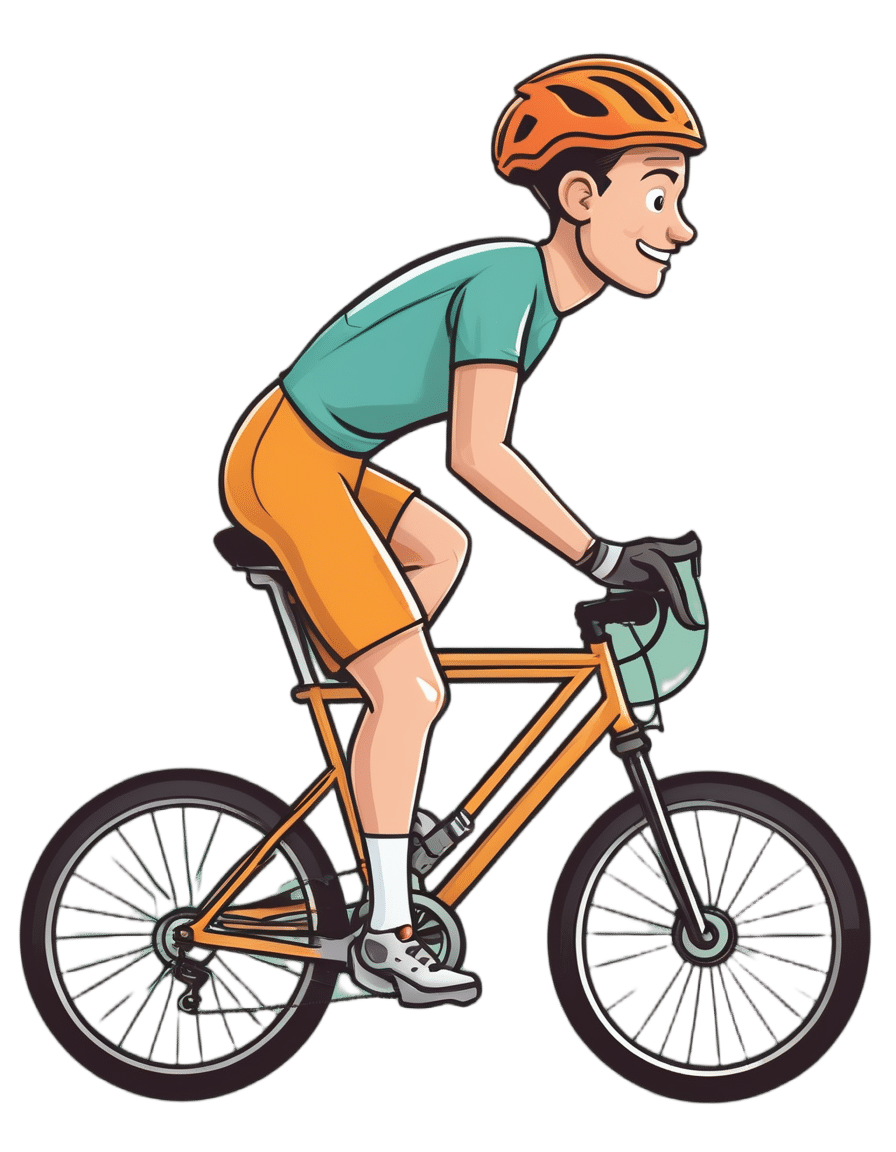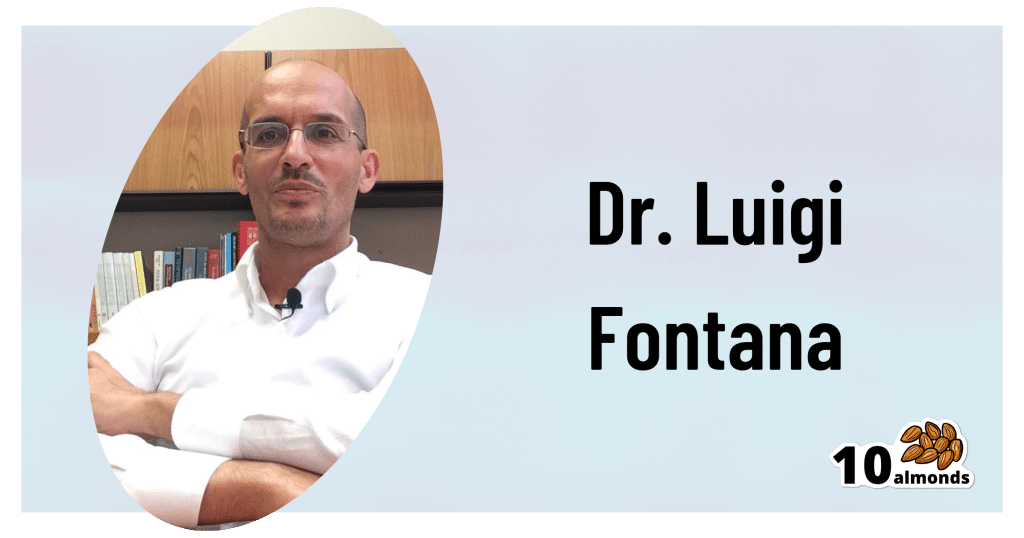
Screaming at Screens?
10almonds is reader-supported. We may, at no cost to you, receive a portion of sales if you purchase a product through a link in this article.
I Screen, You Screen, We All Screen For…?
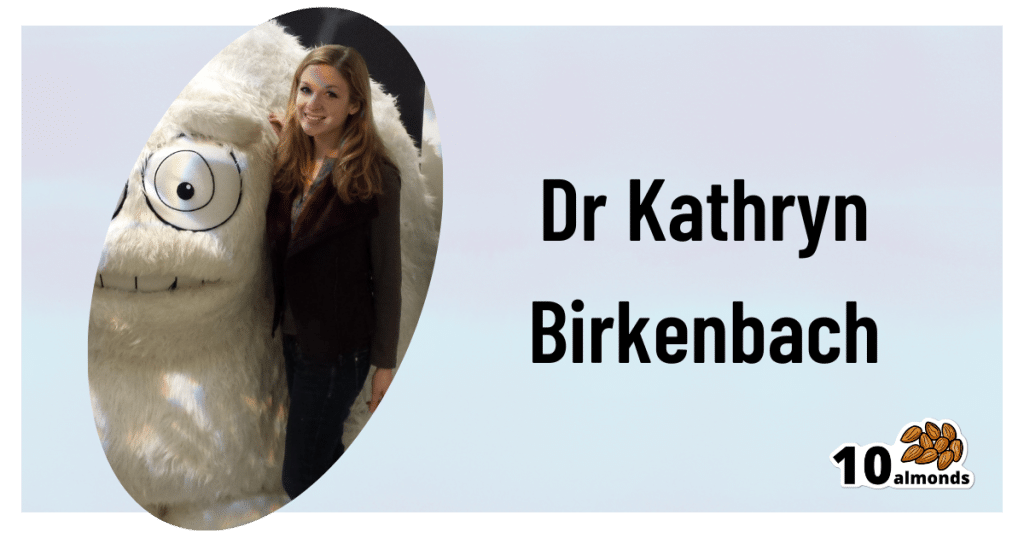
Dr. Kathryn Birkenbach is a postdoctoral research fellow in the Department of Neuroscience at Columbia University, and Manager of Research at Early Medical in New York.
Kathryn has things to tell us about kids’ neurological development, and screen time spent with electronic devices including phones, tablets, computers, and TVs.
From the 1960s criticism of “the gogglebox” to the modern-day critiques of “iPad babies” as a watchword of parental neglect, there’s plenty people can say against screen time, but Dr. Birkenbach tells us the that the reality is more nuanced:
Context Is Key
On a positive note”: consistent exposure to age-appropriate educational material results in quicker language acquisition than media that’s purely for entertainment purposes, or not age-appropriate.
Contrary to popular belief, children do not in fact learn by osmosis!
Interaction Is Far More Valuable Than Inaction
Kathryn advises that while adults tend to quite easily grasp things from instructional videos, the same does not go for small children.
This means that a lot of educational programming can be beneficial to small children if and only if there is an adult with them to help translate the visual into the practical!
There’s a story that does the rounds on the Internet: a young boy wanted to train his puppy, but didn’t know how. He asked, and was told “search for puppy training on YouTube”. His parents came back later and found him with his iPad, earnestly showing the training videos to the puppy.
We can laugh at the child’s naïvety, knowing that’s not how it works and the puppy will not learn that way, so why make the same mistake in turn?
❝The phenomenon known as the “video deficit effect” can be overcome, when an on-screen guide interacts with the child or a parent is physically present and draws the child’s attention to relevant information.
In other words, interaction with others appears to enhance the perceived salience of on-screen information, unlocking a child’s ability to learn from a medium which would otherwise offer no real-world benefit.❞
Screens Can Supplement, But Can’t Replace, Live Learning & Play
Sci-fi may show us “education pods” in which children learn all they need to from their screen… but according to our most up-to-date science, Dr. Birkenbach says, that simply would not work at all.
Screen time without adult interactions will typically fail to provide small children any benefit.
There is one thing it’s good at, though… attracting and keeping attention.
Thus, even a mere background presence of a TV show in the room will tend to actively reduce the time a small child spends on other activities, including live learning and exploratory play.
The attention-grabbing abilities of TV shows don’t stop at children, though! Adult caregivers will also tend to engage in fewer interactions with their children… and the interactions will be shorter and of lower quality.
In Summary:
- Young children will tend not to learn from non-interactive screen time
- Interactive screen time, ideally with a caregiver, can be educational
- Interactive screen time, not with a carer, can be beneficial (but a weak substitute)
- Interactive screen time refers to shows such as Dora The Explorer, where Dora directly addresses the viewer and asks questions…But it’s reliant on the child caring to answer!
- It can also mean interactive educational apps, provided the child does consciously interact!
- Randomly pressing things is not conscious interaction! The key here is engaging with it intelligently and thoughtfully
- A screen will take a child’s time and attention away from non-screen things: that’s a genuine measurable loss to their development!
Absolute Bottom Line:
Screens can be of benefit to small children, if and only if the material is:
- Age-Appropriate
- Educational
- Interactive
If it’s missing one of those three, it’ll be of little to no benefit, and can even harm, as it reduces the time spent on more beneficial activities.
Don’t Forget…
Did you arrive here from our newsletter? Don’t forget to return to the email to continue learning!
Recommended
Learn to Age Gracefully
Join the 98k+ American women taking control of their health & aging with our 100% free (and fun!) daily emails:
-
Fasting Without Crashing?
10almonds is reader-supported. We may, at no cost to you, receive a portion of sales if you purchase a product through a link in this article.
Intermittent Fasting: What’s the truth?
Before we get to facts and fictions, let’s quickly cover:
What is Intermittent Fasting?
Intermittent Fasting (IF) is an umbrella term for various kinds of time-restricted fasting, based on a schedule. Types include:
Time-restricted IF, for example:
- 16:8—Fast for 16 hours, eat during an 8-hour window
- 18:6–Fast for 18 hours, eat during a 6-hour window
- 20:4—Fast for 20 hours, eat during a 4-hour window
24hr fasting, including:
- Eat Stop Eat—basically, take a day off from eating once a week
- Alternate Day Fasting—a more extreme version of the above; it is what it sounds like; eat one day, fast the next, repeat
Non-fast fasting, e.g:
- 5:2—Eat normally for 5 days, have a very reduced calorie intake (⅓ of normal intake) for the other 2 days
- Fruit Fasting—have a small amount of fruit on “fast” days, but no other food
- The Warrior Diet—as above, but include a small amount of non-starchy vegetables
Why IF?
While IF is perhaps most commonly undertaken as a means of fat loss or fat management (i.e., keeping fat down when it is already low), others cite different reasons, such as short term cognitive performance or long-term longevity.
But… Does it work?
Here we get into the myth-busting bit!
“IF promotes weight loss”
Mix of True and False. It can! But it also doesn’t have to. If you’re a bodybuilder who downs 4,000 calories in your 4hr eating window, you’re probably not going to lose weight! For such people, this is of course “a feature, not a bug” of IF—especially as it has been found that, in an acute study, IF did not adversely impact muscle protein synthesis.
“IF promotes fat loss, without eating less”
Broadly True. IF was found to be potentially equal to, but not necessarily better than, eating less.
“IF provides metabolic benefits for general health”
Broadly True. IF (perhaps counterintuitively) decreases the risk of insulin resistance, and also has anti-inflammatory effects, benefits a healthy gut microbiome, and promotes healthy autophagy (which as we noted in a previous edition of 10almonds, is important against both aging and cancer)
However, results vary according to which protocol you’re observing…
For what it’s worth, 16:8 is perhaps the most-studied protocol. Because such studies tend to have the eating window from midday to 8pm, this means that—going against popular wisdom—part of the advice here is basically “skip breakfast”.
“Unlike caloric restriction, IF is sustainable and healthy as a long-term protocol”
Broadly True. Of course, there’s a slight loophole here in that IF is loosely defined—technically everyone fasts while they’re sleeping, at the very least!
However, for the most commonly-studied IF method (16:8), this is generally very sustainable and healthy and for most people.
On the other hand, a more extreme method such as Alternate Day Fasting, may be trickier to sustain (even if it remains healthy to do so), because it’s been found that hunger does not decrease on fasting days—ie, the body does not “get used to it”.
The American Journal of Clinical Nutrition wrote:
❝Alternate-day fasting was feasible in nonobese subjects, and fat oxidation increased. However, hunger on fasting days did not decrease, perhaps indicating the unlikelihood of continuing this diet for extended periods of time. Adding one small meal on a fasting day may make this approach to dietary restriction more acceptable.❞
“IF improves mood and cognition”
Mix of True and False (plus an honest “We Don’t Know” from researchers).
Many studies have found benefits to both mood and cognition, but in the short-term, fasting can make people “hangry” (or: “experience irritability due to low blood sugar levels”, as the scientists put it), and in the long term, it can worsen symptoms of depression for those who already experience such—although some studies have found it can help alleviate depressive symptoms.
Basically this is one where researchers typically append the words “more research is needed” to their summaries.
“Anyone can do IF”
Definitely False, unless going by the absolute broadest possible interpretation of what constitutes “Intermittent Fasting” to the point of disingenuity.
For example, if you are Type 1 Diabetic, and your blood sugars are hypo, and you wait until tomorrow to correct that, you will stand a good chance of going into a coma instead. So please don’t.
(On the other hand, IF may help achieve remission of type 2 diabetes)
Lastly, IF is broadly not recommend to children and adolescents, anyone pregnant or breastfeeding, and certain underlying health conditions not mentioned above (we’re not going to try to give an exhaustive list here, but basically, if you have a chronic health condition, we recommend you check with your doctor first).
WHICH APP?
Choosing a fasting app
Thinking of giving IF a try and would like a little extra help? We’ve got you covered!
Check out: Livewire’s 7 Best Intermittent Fasting Apps of 2023
Prefer to just trust us with a recommendation?
We like BodyFast—it’s #2 on Lifewire’s list, but it has an array of pre-set plans to choose from (unlike Lifewire’s #1, Zero), and plenty of clear tracking, scheduling help, and motivational features.
Both are available on both iOS and Android:
Share This Post
-
Inheritance – by Dr. Sharon Moalem
10almonds is reader-supported. We may, at no cost to you, receive a portion of sales if you purchase a product through a link in this article.
We know genes make a big difference to a lot about us, but how much? And, the genes we have, we’re stuck with, right?
Dr. Sharon Moalem shines a bright light into some of the often-shadowier nooks and crannies of our genetics, covering such topics as:
- How much can (and can’t) be predicted from our parents’ genes—even when it comes to genetic traits that both parents have, and Gregor Mendel himself would (incorrectly) think obvious
- How even something so seemingly simple and clear as genetic sex, very definitely isn’t
- How traumatic life events can cause epigenetic changes that will scar us for generations to come
- How we can use our genetic information to look after our health much better
- How our life choices can work with, or overcome, the hand we got dealt in terms of genes
The style of the book is conversational, down to how there’s a lot of “I” and “you” in here, and the casual style belies the heavy, sharp, up-to-date science contained within.
Bottom line: if you’d like insight into the weird and wonderful nuances of genetics as found in this real, messy, perfectly chaotic world, this book is an excellent choice.
Click here to check out Inheritance, and learn more about yours!
Share This Post
-
Does Ginseng Increase Testosterone Levels?
10almonds is reader-supported. We may, at no cost to you, receive a portion of sales if you purchase a product through a link in this article.
❓ Q&A With 10almonds Subscribers!
Q: You talked about spearmint as reducing testosterone levels, what about ginseng for increasing them?
A: Hormones are complicated and often it’s not a simple matter of higher or lower levels! It can also be a matter of…
- how your body converts one thing into another
- how your body responds (or not) to something according to how the relevant hormone’s receptors are doing
- …and whether there’s anything else blocking those receptors.
All this to say: spearmint categorically is an anti-androgen, but the mechanism of action remains uncertain.
Panax ginseng, meanwhile, is one of the most well-established mysteries in herbal medicine.
Paradoxically, it seems to improve both male and female hormonal regulation, despite being more commonly associated with the former.
- It doesn’t necessarily increase or decrease testosterone or estrogen levels (but it can, even if indirectly)
- It does improve sexual function
- …and alleviates symptoms associated with conditions as varied as:
- Late-onset hypogonadism (common for men during the andropause)
- Benign prostate hyperplasia (again common for men during the andropause)
- …and also counteracts unwanted side-effects of finasteride. Finasteride is often taken by men as a hair loss remedy or, less often but critically, in the case of an enlarged prostate.
But it also…
- Alleviates symptoms of PCOS (polycystic ovary syndrome, which effects around 20% of women)
- May even be an effective treatment for PCOS (rat model only so far)
- It also may improve female reproductive fertility more generally (the studies are down to fruit flies now though)
Bottom line: Panax ginseng is popularly taken to improve natural hormone function, a task at which it appears to excel.
Scientists are still working out exactly how it does the many things it appears to do.
Progress has been made, and it clearly is science rather than witchcraft, but there are still far more unanswered questions than resolved ones!
Share This Post
Related Posts
-
Food Fix – by Dr. Mark Hyman
10almonds is reader-supported. We may, at no cost to you, receive a portion of sales if you purchase a product through a link in this article.
On a simplistic level, “eat more plants, but ideally not monocrops, and definitely fewer animals” is respectable, ecologically-aware advice that is also consistent with good health. But it is a simplification, and perhaps an oversimplification.
Is there space on a healthy, ecologically sound plate for animal products? Yes, argues Dr. Mark Hyman. It’s a small space, but it’s there.
For example, some kinds of fish are both healthier and more sustainable as a food source than others, same goes for some kinds of dairy products. Poultry, too, can be farmed sustainably in a way that promotes a small self-contained ecosystem—and in terms of health, consumption of poultry appears to be health-neutral at worst.
As this book explores:
- Oftentimes, food choices look like: healthy/sustainable/cheap (choose one).
- Dr. Hyman shows how in fact, we can have it more like: healthy/sustainable/cheap (choose two).
- He argues that if more people “vote with their fork”, production will continue to adjust accordingly, and we’ll get: healthy/sustainable/cheap (all three).
To this end, while some parts of the book can feel like they are purely academic (pertaining less to what we can do as individuals, and more on what governments, farming companies, etc can do), it’s good to know what issues we might also take to the ballot box, if we’re able.
The big picture aside, the book remains very strong even just from an individual health perspective, though.
Bottom line: if you have an interest in preserving your own health, and possibly humanity itself, this is an excellent book.
Don’t Forget…
Did you arrive here from our newsletter? Don’t forget to return to the email to continue learning!
Learn to Age Gracefully
Join the 98k+ American women taking control of their health & aging with our 100% free (and fun!) daily emails:
-
Taurine: An Anti-Aging Powerhouse? Exploring Its Unexpected Benefits
10almonds is reader-supported. We may, at no cost to you, receive a portion of sales if you purchase a product through a link in this article.
Dr. Mark Rosenberg explains:
Not a stimulant, but…
- Its presence in energy drinks often causes people to assume it’s a stimulant, but it’s not. In fact, it’s a GABA-agonist, thus having a calming effect.
- The real reason it’s in energy drinks is because it helps increase mitochondrial ATP production (ATP = adenosine triphosphate = how cells store energy that’s ready to use; mitochondria take glucose and make ATP)
- Taurine is also anti-inflammatory, antioxidant, and anticancer.
- In the category of aging, human studies are slow to give results for obvious reasons, but mouse studies show that supplementing taurine in middle-aged mice increased their lifespan by 10–12%, as well as improving various physiological markers of aging.
- Taking a closer look at aging—literally; looking at cellular aging—taurine reduces cellular senescence and protects telomeres, thus decreasing DNA mutations.
For more on the science of these, plus Dr. Rosenberg’s personal experience, enjoy:
Click Here If The Embedded Video Doesn’t Load Automatically!
Want to learn more?
You might also like to read:
- Taurine’s Benefits For Heart Health And More
- Dr. Greger’s Anti-Aging Eight
- Age & Aging: What Can (And Can’t) We Do About It?
Take care!
Don’t Forget…
Did you arrive here from our newsletter? Don’t forget to return to the email to continue learning!
Learn to Age Gracefully
Join the 98k+ American women taking control of their health & aging with our 100% free (and fun!) daily emails:
-
Healthy Longevity As A Lifestyle Choice
10almonds is reader-supported. We may, at no cost to you, receive a portion of sales if you purchase a product through a link in this article.
7 Keys To Healthy Longevity
This is Dr. Luigi Fontana. He’s a research professor of Geriatrics & Nutritional Science, and co-director of the Longevity Research Program at Washington University in St. Louis.
What does he want us to know?
He has a many-fold approach to healthy longevity, most of which may not be news to you, but you might want to prioritize some things:
Consider caloric restriction with optimal nutrition (CRON)
This is about reducing the metabolic load on your body, which frees up bodily resources for keeping yourself young.
Keeping your body young and healthy is your body’s favorite thing to do, but it can’t do that if it never gets a chance because of all the urgent metabolic tasks you’re giving it.
If CRON isn’t your thing (isn’t practicable for you, causes undue suffering, etc) then intermittent fasting is a great CR mimetic, and he recommends that too. See also:
- Is Cutting Calories The Key To Healthy Long Life?
- Fasting Without Crashing? We Sort The Science From The Hype
Keep your waistline small
Whichever approach you prefer to use to look after your metabolic health, keeping your waistline down is much more important for health than BMI.
Specifically, he recommends keeping it:
- under 31.5” for women
- under 37” for men
The disparity here is because of hormonal differences that influence both metabolism and fat distribution.
Exercise as part of your lifestyle
For Dr. Fontana, he loves mountain-biking (this writer could never!) and weight-lifting (also not my thing). But what’s key is not the specifics, but what’s going on:
- Some kind of frequent movement
- Some kind of high-intensity interval training
- Some kind of resistance training
Frequent movement because our bodies are evolved to be moving more often than not:
The Doctor Who Wants Us To Exercise Less, & Move More
High-Intensity Interval Training because unlike most forms of exercise (which slow metabolism afterwards to compensate), it boosts metabolism for up to 2 hours after training:
How To Do HIIT (Without Wrecking Your Body)
Resistance training because strength (of muscles and bones) matters too:
Resistance Is Useful! (Especially As We Get Older)
Writer’s examples:
So while I don’t care for mountain-biking or weight-lifting, what I do is:
1) movement: walk (briskly!) everywhere and also use a standing desk
2) HIIT: 2-minute bursts of hindu squats and/or exercise bike sprints
3) resistance: pilates and other calisthenicsModeration is not key
Dr. Fontana advises that we do not smoke, and that we do not drink alcohol, for example. He also notes that just as the only healthy amount of alcohol is zero, less ultra-processed food is always better than more.
Maybe you don’t want to abstain completely, but mindful wilful consumption of something unhealthy is preferable to believing “moderate consumption is good for the health” and an unhealthy habit develops!
Greens and beans
Shocking absolutely nobody, Dr. Fontana advocates for (what has been the most evidence-based gold standard of healthy-aging diets for quite some years now) the Mediterranean diet.
See also: Four Ways To Upgrade The Mediterranean Diet ← this is about tweaking the Mediterranean diet per personal area of focus, e.g. anti-inflammatory bonus, best for gut, heart healthiest, and most neuroprotective.
Take it easy
Dr. Fontana advises us (again, with a wealth of evidence) Mindfulness-Based Stress Reduction, and to get good sleep.
Not shocked?
To quote the good doctor,
❝There are no shortcuts. No magic pills or expensive procedures can replace the beneficial effects of a healthy diet, exercise, mindfulness, or a regenerating night’s sleep.❞
Always a good reminder!
Want to know more?
You might enjoy his book “The Path to Longevity: How to Reach 100 with the Health and Stamina of a 40-Year-Old”, which we reviewed previously
You might also like this video of his, about changing the conversation from “chronic disease” to “chronic health”:
Want to watch it, but not right now? Bookmark it for later
Take care!
Don’t Forget…
Did you arrive here from our newsletter? Don’t forget to return to the email to continue learning!
Learn to Age Gracefully
Join the 98k+ American women taking control of their health & aging with our 100% free (and fun!) daily emails:



